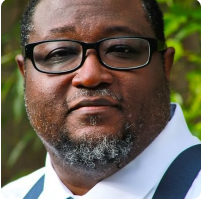By Will Deyamport, III, Ed.D Candidate
I cannot tell you how many times I have heard that teachers are the determining factor in a student’s academic success. Aside from that not being true, that frame of thought dismisses the importance of school, district, state, and federal leadership. A teacher can only do what the leadership has planned, designed, and allowed him or her to do. If the leadership’s primary focus is on raising test scores, then you are going to see that school not do well, no matter who or what type of teachers are at the school.
There is a reason why suburban schools are more successful than urban or rural schools. Discounting parental and communal support, what suburban schools do differently is focus on college admittance rates as well as developing the whole student. By not having such a narrow view of student success, suburban schools have more expansive and rigorous curriculum, greater expectations for their students, and empower their teachers to challenge their students. While urban and rural schools cling to rote memorization and hand cuff their teachers to teaching to the test.
OK. Yes, I know that suburban schools don’t have to deal with generations of poverty, high dropout rates and high rates of teenage pregnancy, and parental neglect. And yes, I know that suburban schools don’t have to deal with students who started school from behind on day one. However, that doesn’t excuse the lack of leadership that has been displayed by too many urban and rural leaders at the school, district, state and levels.
Leadership sets the overall tone of the school. They create the culture, choose the learning programs, and make the personnel decisions. Leadership is responsible for the mission and vision of the school and is charged with making sure that every action taken falls in alignment with said mission and vision. Leadership spearheads innovation and encourages the teachers as well as the students to bring their best selves to school. Plain and simple, leadership is the spoon that stirs the drink.
If urban and rural schools continue to make testing and graduation rates their be all, end all, then we are going to see more schools in urban and rural areas fall short. Fixing America's urban and rural schools begins with fixing public education's leadership problem.
What I would like to see is a fundamental shift in how urban and rural schools live and breathe. I want to see leadership that embraces change as an inevitability and seeks out opportunities in which their schools can move from a consumption model to a production model. I want to see leadership that makes it its mission to develop the strengths and talents of students. And I want to see leadership that understands that we live in a global economy, and we can no longer prepare our students for the jobs/careers of yesterday.
Will Deyamport, III, is an educational digital strategist, new media trainer, online content creator and Ed.D. Candidate at Capella University. With more than 13 years of experience recruiting, youth development, and seminar and workshop design, Will is a thought-leader, astute at harnessing the power of digital media to build community, learning networks, disseminate information and create authentic learning experiences. In addition to being the founder of Peoplegogy.com, Will is also a guest blogger for Career Blog and has been featured at . Currently, Will is working on his dissertation. The topic: Using social media to individualize professional development for teachers. In the future, Will hopes to become a university professor where he plans to lead the discussions about the social, cultural, technological, and educational issues of our time. He is fueled by engagement and collaboration, and he wants to be a part of an institution that fervently believes in the power of ideas to change how people think and live their lives.






